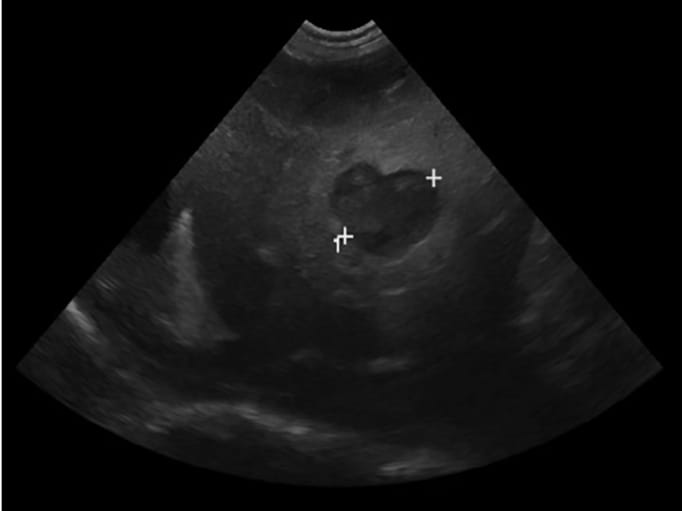- Veterinary View Box
- Posts
- Hepatic abscess-indeed they need to go to surgery
Hepatic abscess-indeed they need to go to surgery
J Vet Emerg Crit Care (San Antonio). 2023
Jasper E Burke 1, Rebecka S Hess 1, Elisa P McEntee 2, Maureen A Griffin 1, Selimah M Harmon 1, Deborah C Silverstein 1
Background
Hepatic abscessation in dogs is rare and poorly characterized, with clinical management typically guided by anecdotal evidence. Existing veterinary literature lacks robust data on prevalence, clinical presentation, diagnostics, treatments, and outcomes. This multicenter retrospective study aimed to describe the clinical features, diagnostics, treatments, and outcomes of dogs diagnosed with hepatic abscesses across three veterinary teaching hospitals.
Methods
Medical records from 2010 to 2019 were reviewed at three institutions to identify cases of confirmed hepatic abscessation in dogs. Inclusion criteria required confirmation through cytology, histopathology, or imaging evidence of an intrahepatic fluid-filled lesion with concurrent clinical signs and positive culture. Data collected included signalment, clinical signs, diagnostics, treatment modality (medical vs. surgical), complications, and outcomes. Statistical analyses compared factors influencing survival.
Results
Fifty-six dogs met inclusion criteria. Common clinical signs were lethargy (89%), anorexia (80%), vomiting (52%), and fever (52%). Abdominal ultrasound identified abscesses in 98% of cases. Bacterial cultures were positive in 64%, predominantly yielding Escherichia coli and Enterococcus spp. Thirty-two dogs received medical management alone, while 24 underwent surgical intervention. Overall survival to discharge was 77%, with a significantly higher survival rate in the surgical group (92%) compared to the medical group (66%). No variables, including culture positivity or specific bacterial isolates, were statistically associated with survival.
Limitations
The retrospective nature limits control over diagnostic and treatment protocols, introducing variability. Some cases lacked complete culture data or consistent follow-up. Selection bias may be present, as referral centers may manage more severe cases or those requiring advanced imaging or surgery.
Conclusions
Hepatic abscessation in dogs carries a guarded to fair prognosis. Surgical intervention was associated with higher survival rates, suggesting a potential benefit over medical management in selected cases. The study emphasizes the importance of early diagnosis and individualized treatment planning. Further prospective studies are needed to refine treatment guidelines and identify prognostic indicators.

Ultrasound image of a large solitary liver abscess in one of the study dogs
How did we do? |
Disclaimer: The summary generated in this email was created by an AI large language model. Therefore errors may occur. Reading the article is the best way to understand the scholarly work. The figure presented here remains the property of the publisher or author and subject to the applicable copyright agreement. It is reproduced here as an educational work. If you have any questions or concerns about the work presented here, reply to this email.